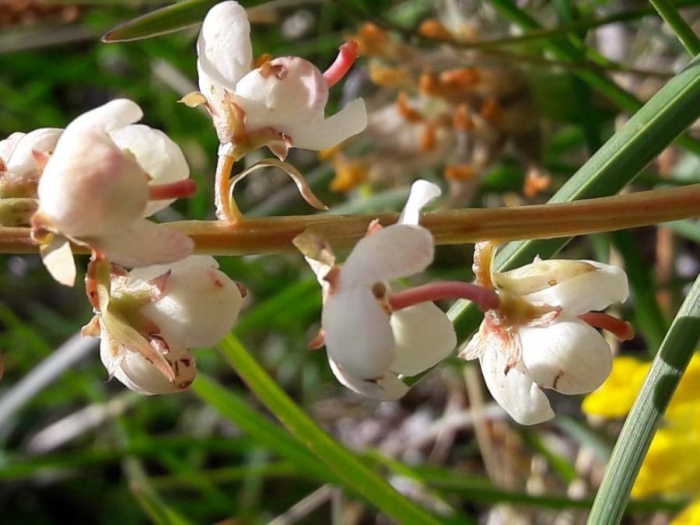Round-Leaved Wintergreen
(Pyrola rotundifolia)
Round-Leaved Wintergreen (Pyrola rotundifolia)
/
/

Denis Bastianelli
CC BY-SA 4.0
Image By:
Denis Bastianelli
Recorded By:
Copyright:
CC BY-SA 4.0
Copyright Notice:
Photo by: Denis Bastianelli | License Type: CC BY-SA 4.0 | License URL: https://creativecommons.org/licenses/by-sa/4.0/ | Attribution: Denis Bastianelli (cc-by-sa) | Rights Holder: Denis Bastianelli | Publisher: PlantNet | Date Created: 2018-07-29T22:00Z | Title: Pyrola rotundifolia L.: flower | Notes: |















































Estimated Native Range
Summary
Pyrola rotundifolia, commonly known as Round-Leaved Wintergreen, is an evergreen perennial herb native to cool temperate forests, often found in the understory of coniferous and mixed broadleaf-coniferous woodlands, as well as in moist, shaded areas across Asia and Europe. It typically grows to a height and width of about 1 foot (0.3 meters). This plant forms a low rosette of rounded, leathery leaves, from which emerge slender stalks bearing nodding, bell-shaped white flowers in the late spring and summer. The flowers are modest in size but can be quite showy when in large numbers. Round-Leaved Wintergreen is appreciated for its evergreen foliage, which provides year-round interest, and its ability to thrive in shady conditions where other plants may struggle.
Round-Leaved Wintergreen is ideal for woodland gardens, shade gardens, and naturalized areas. It is valued for its adaptability to a range of light conditions, from full sun in cooler climates to full shade in warmer regions. It requires consistently moist soil, often found in its natural habitat of wet woodlands and boggy areas. While it is not drought-tolerant, it can be a low-maintenance plant in the right environment. There are no major disease or pest issues, but it can be sensitive to overly dry conditions or too much direct sunlight. It is not known for aggressive roots or invasiveness.CC BY-SA 4.0
Round-Leaved Wintergreen is ideal for woodland gardens, shade gardens, and naturalized areas. It is valued for its adaptability to a range of light conditions, from full sun in cooler climates to full shade in warmer regions. It requires consistently moist soil, often found in its natural habitat of wet woodlands and boggy areas. While it is not drought-tolerant, it can be a low-maintenance plant in the right environment. There are no major disease or pest issues, but it can be sensitive to overly dry conditions or too much direct sunlight. It is not known for aggressive roots or invasiveness.CC BY-SA 4.0
Plant Description
- Plant Type: Herb
- Height: 0.3-1 feet
- Width: 0.3-1 feet
- Growth Rate: Slow
- Flower Color: White
- Flowering Season: Spring, Summer
- Leaf Retention: Evergreen
Growth Requirements
- Sun: Full Sun, Part Shade, Full Shade
- Water: High
- Drainage: Slow, Wet
Common Uses
Fragrant, Low Maintenance
Natural Habitat
Cool temperate forests, often found in the understory of coniferous and mixed broadleaf-coniferous woodlands, as well as in moist, shaded areas
Other Names
Common Names: Round-Leaf Wintergreen, Wintergreen, Кръглолистна Мурава, Glesyn-Y-Gaeaf Deilgrwn, Rundblättriges Wintergrün, Isotalvikki, Pyrole À Feuilles Rondes, Glasluibh Chruinn, Storvintergrønn, Rond Wintergroen
Scientific Names: , Pyrola rotundifolia, Pyrola rotundifolia var. rotundifolia, Pyrola serotina, Pyrola rotundifolia f. serotina, Pyrola rotundifolia var. chloranthoides, Pirola rotundifolia, Pyrola concolor, Pyrola discolor, Pyrola monophyla
GBIF Accepted Name: Pyrola rotundifolia L.